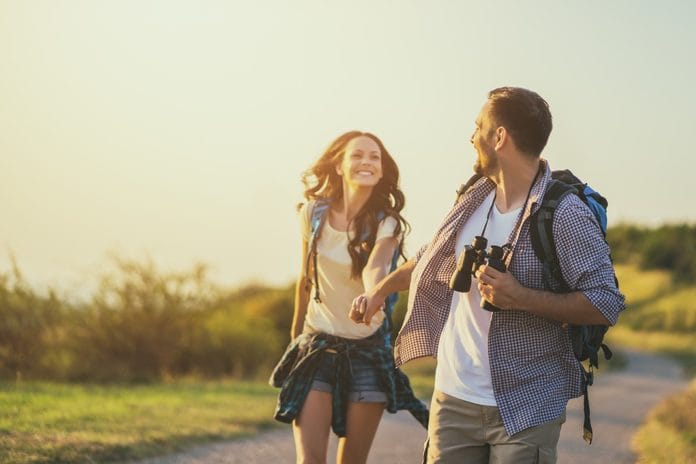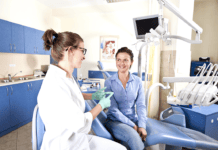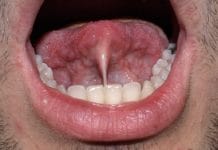Today, more than ever, we live almost devoid of natural stimuli in our homes, in our cars, at work, and when we relax. Most of our experiences are manufactured for our comfort. For most people, their time outdoors consists of moving from a climate-controlled building to a climate-controlled vehicle, and this cycle is repeated for days, even years. Regardless of whether you live in Phoenix or Minneapolis, you are able to avoid the weather 99% of the time.
We are even able to control much of what we hear or see. It has become commonplace to see people wearing headphones at the store, during work, and even when they do go outside to exercise. Any time that provides a lull in activity is a great time to pull out your phone or tablet and look at apps that have been tailored by you to only contain information that you want to see. You can block, unfriend, or unfollow anyone with a difference of opinion.
Sadly, we don’t even hardly have to move to survive. Anything can be delivered to your front door, only requiring stepping out of your house a foot or two to bring it inside. Delivery services will go to your favorite restaurant for you and bring you your meals, hot and ready to eat. It is possible to live life virtually, for a large part of your day. You can make friends, date, and break up without ever leaving the comfort of your couch.
Confined Spaces
Dental hygienists spend more time than most within a very small workspace. We sit hunched over a small screen, computer keyboard, a steering wheel, and a patient’s mouth. Treating patients can be both mentally and physically exhausting. Utilizing proper ergonomics is essential for a long career without injury.
The virtues of incorporating exercise into our daily routine have been thoroughly documented. Mindfulness or other stress management techniques are becoming familiar ideas to almost everyone. But is this enough? I would argue that, while engaging in all of these activities is essential, we are often missing out on one of the most therapeutic things available − nature.
Practicing dental hygiene is demanding. It seems like every dental consultant’s answer to increasing production starts and ends in the dental hygiene department. They recommend shortening appointment times and increasing the load with sealants, whitening, and pushing the hygienist to sell, sell, sell. Between this and our overscheduled personal lives, it is difficult to ever fully decompress.
Get Outdoors
There is a growing amount of evidence that humankind is suffering from inadequate amounts of the good ol’ outdoors. Richard Louv coined the term “Nature Deficit Disorder” in his book Last Child in the Woods. He further expanded on it in his later work, The Nature Principle. Louv’s idea is that we are all missing an integral part of what it means to be human by moving so much of our lives indoors. His books utilize hundreds of references from scientific journals, articles, and books to provide an evidence-based backing for his anecdotal storytelling. His passionate cry for a communal return to the environment from which we came reflects the spirit of Teddy Roosevelt’s decision to create the National Park System, and the first wildlife refuge.
Henry David Thoreau wrote about nature, “There are moments when all anxiety and stated toil are becalmed in the infinite leisure and repose of nature (Thoreau, 2010).”
Physical benefits are also related to time outdoors. For example, vitamin D levels are dropping in residents across the United States, and these drops are associated with all kinds of health problems from cancer and type II diabetes to seasonal mood disorders and decreased strength in children. It has even been proposed that vitamin D has a role in lowering periodontal disease risk.
These ideas have also been echoed in a book by Florence Williams titled Nature Fix: Why Nature Makes Us Happier, Healthier, and More Creative. These books and a growing body of evidence confirm what I have always known intuitively. Nature is good for what ails you.
Even as a child, I sought out the peace that can only be found in the middle of nowhere. Whenever life would throw me a curveball, I would self-medicate with a dose of nature. I grew up in rural Arizona and had unlimited access to the outdoors. I spent my childhood picking out mountain tops or deep canyons in the country around my home and doing whatever it took to get there. Hiking and exploring became passions that have not dimmed as I have grown older.
Nature provides an infinite amount of reasons for us to be in awe. That all life on earth owes its origins to stardust that traveled across the cosmos to crash into earth provides me with a sense of reverence and wonderment that doesn’t require embellishment. It provides a perspective that makes most of life’s manufactured emergencies feel insignificant. It reminds me that humans continually create imaginary stresses that usually only exist in our minds.
We are our own worst critics. It is tragic that the myriad of positive, life-affirming things that happen throughout our lifetime are not celebrated in our mind with the same vigor dedicated to reminding us of our failures. Nature provides one of the few ways that I can shut off my inner dialogue and just be present.
In Japan, they practice something called Shinrin-yoku. Shinrin means forest, and Yoku means bath. This translates roughly into forest bathing and is the practice of going out into nature and surrendering yourself to your senses − engaging all of your senses and not controlling the stimuli you receive in return. This means smelling, tasting, hearing, touching, seeing, and just being present in nature as it is without artificial replacements. Not only does this make people feel mentally and physically healthier, there is science to back it up. Studies have shown that forest bathing, or nature therapy, can reduce blood pressure, reduce stress, improve the immune system, and increased energy to name a few benefits (Li, 2018). The mind-body connection is not a new concept, and it should not be surprising that mental wellness provides physical benefits too.
Just Sitting There
Dental hygiene is a stressful career. My father is a dental hygienist, and we would both go to work in the morning − him to the dental office and me to bail hay and build a fence. At the end of the day, he would sit back in his chair and tell me how drained he was. I still remember laughing at him and telling him that his job was easy. “You just sit there.”
He had the last laugh, though. Two months after graduating and working in private practice, I found myself calling him up to tell him that now I understood what he was talking about. It is both mentally and physically exhausting to deal with so many different personalities while working in an area the size of a baseball.
Humans were once intimately connected to the earth and relied on it to provide everything we needed to survive. The current disconnect we have from the natural world is in no way natural. Our lives have become so sedentary that we pay money to go to a building and walk on a treadmill that doesn’t go anywhere. It would be funny if it wasn’t so sad.
This weekend, do yourself a favor and spend an hour outdoors. Explore a local trail or spend time in a neighborhood park, or pick a spot on the horizon and figure out how to get there. Whatever you choose to do, do it outside. Reconnect with your natural self and get well, get wild, and get wandering.
Now Listen to the Today’s RDH Dental Hygiene Podcast Below:
References
- Louv, R. (2013). The nature principle: reconnecting with life in a virtual age. Chapel Hill, NC: Algonquin.
- Li, Q. (2018). Forest bathing: how trees can help you find health and happiness. New York: Viking.
- Thoreau, H. D. (2010). A week on the Concord and Merrimack. Whitefish, MT: Kessinger Pub.
- Williams, F. (2018). The nature fix: why nature makes us happier, healthier, and more creative. New York, NY: W.W. Norton & Company.












